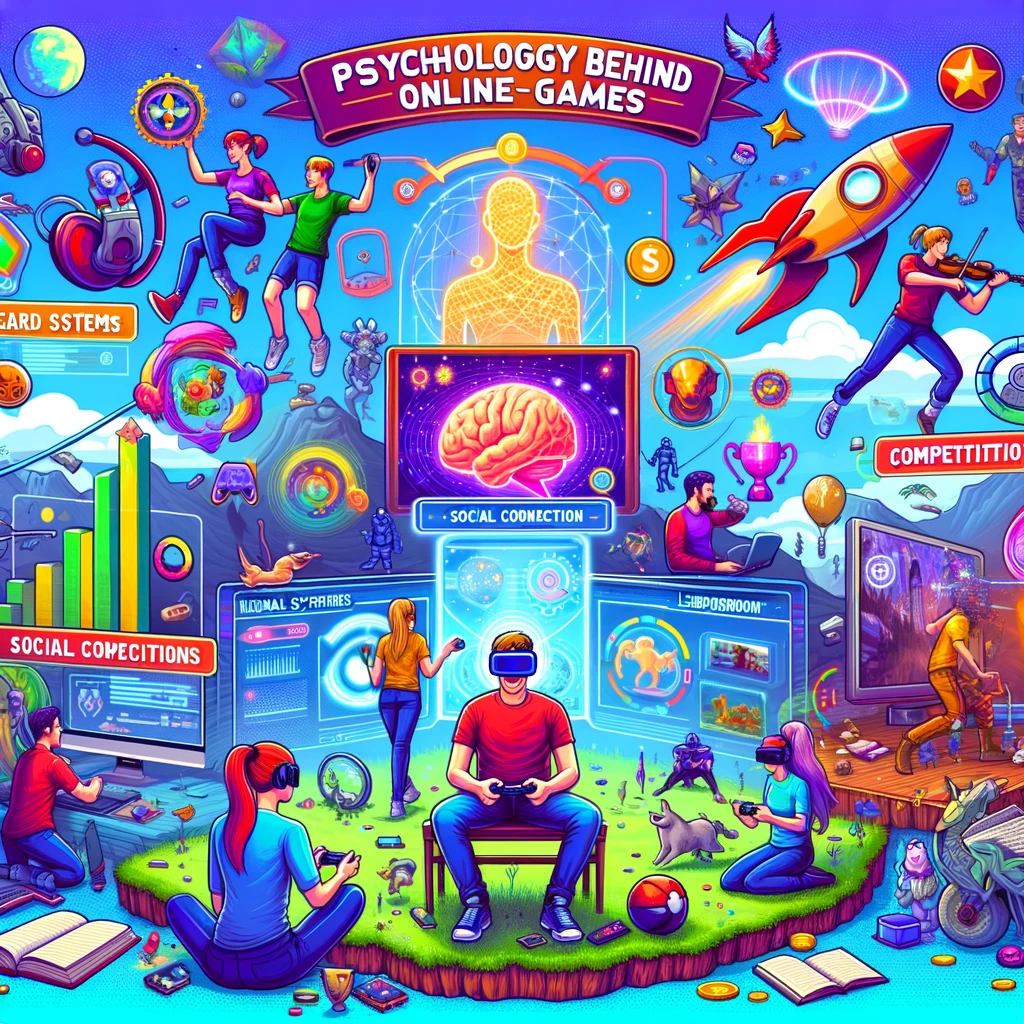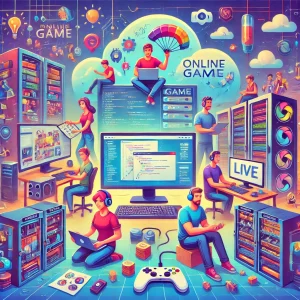Introduction
Online games have become an integral part of modern entertainment, captivating millions of players worldwide. Whether it’s the thrill of competition, the allure of exploration, or the joy of connecting with friends, online games offer a range of experiences that keep us coming back for more. But what makes these virtual worlds so irresistible? In this article, we delve into the psychology behind online games, exploring the factors that hook players and keep them engaged.
The Appeal of Online Games
1. Instant Gratification and Reward Systems
One of the primary psychological hooks in online games is the use of reward systems. Games often provide immediate feedback through points, achievements, and virtual rewards. This instant gratification triggers the release of dopamine, a neurotransmitter associated with pleasure and motivation. The anticipation of rewards keeps players engaged, encouraging them to complete tasks and reach new milestones.
2. The Power of Progression
Progression systems, such as leveling up or unlocking new content, tap into our desire for growth and accomplishment. Players are motivated to continue playing to see their characters evolve, acquire better gear, or unlock new abilities. This sense of progress provides a feeling of purpose and keeps players invested in the game.
Social Connections and Community
1. Building Relationships and Social Interaction
Humans are inherently social beings, and online games provide a platform to connect with others. Multiplayer games offer opportunities for teamwork, competition, and communication. Many players form lasting friendships through gaming communities, guilds, and online forums. The social aspect of gaming can be a powerful motivator, encouraging players to return to maintain these connections.
2. Competition and Status
Competitive elements in online games, such as leaderboards and ranked matches, appeal to our desire for status and recognition. Achieving high ranks or winning matches provides a sense of accomplishment and can be a source of pride. The drive to outperform others and improve one’s standing keeps players engaged and motivated.
Escapism and Emotional Fulfillment
1. A Temporary Escape from Reality
Online games offer a form of escapism, allowing players to step away from the stresses of everyday life. Immersing oneself in a virtual world provides a break from reality and a chance to experience adventures, challenges, and environments that may be impossible in real life. This escapism can be particularly appealing during times of stress or boredom.
2. Emotional Engagement and Storytelling
Many online games feature rich narratives and complex characters, drawing players into compelling stories. Emotional engagement with a game’s plot or characters can create a deep connection, motivating players to see the story through to its conclusion. Well-crafted storytelling adds an additional layer of immersion and satisfaction.
Psychological Mechanisms That Enhance Engagement
1. Variable Reward Schedules
Games often use variable reward schedules, where rewards are given at unpredictable intervals. This mechanism, similar to how slot machines work, keeps players engaged by creating a sense of anticipation and excitement. The unpredictability of rewards can be highly addictive, encouraging players to keep playing “just one more game.”
2. FOMO (Fear of Missing Out)
Limited-time events, exclusive items, and seasonal content leverage the fear of missing out (FOMO). Players are motivated to log in regularly to participate in events and obtain rare rewards. This strategy creates urgency and keeps players engaged with the game over time.
The Role of Personalization and Player Agency
1. Customization and Identity Expression
Many online games allow players to customize their avatars, outfits, and playstyles. This personalization fosters a sense of ownership and identity within the game. Players often invest time and effort into making their characters unique, which strengthens their attachment to the game.
2. Choice and Control
Giving players the freedom to make choices, whether it’s selecting a character class or choosing a quest path, enhances engagement. Player agency allows individuals to shape their gaming experience, making it more meaningful and enjoyable.
Potential Downsides and Responsible Gaming
1. Recognizing the Risks of Overindulgence
While online games can offer positive experiences, it’s important to recognize the potential risks of excessive gaming. Spending too much time in virtual worlds can lead to neglect of real-life responsibilities, social isolation, and physical health issues.
2. Tips for Healthy Gaming Habits
- Set Time Limits: Establish boundaries to prevent excessive play.
- Take Breaks: Regular breaks can reduce fatigue and improve focus.
- Prioritize Real-Life Commitments: Balance gaming with work, school, and social activities.
- Engage in Physical Activity: Incorporate exercise to counteract sedentary gaming sessions.
Conclusion
The psychology behind online games reveals a complex interplay of reward systems, social connections, emotional engagement, and player agency. These elements work together to create immersive and compelling experiences that keep players coming back. Understanding these psychological factors can help players make informed choices about their gaming habits while allowing them to enjoy the many benefits that online games have to offer. Stay connected with our website for more insights, news, and tips on gaming and digital wellness.


